Prime Minister Pham Minh Chinh’s above-mentioned orientation was made during his concluding remarks at the May Government meeting on law construction, which took place on May 22, according to the Electronic Government Newspaper.
At the meeting, the Government considered and gave opinions on the following: the draft Law on Temporary Detention, Temporary Arrest, and Residence Restriction; the draft Law on Execution of Criminal Judgments (amended); the proposal to build the Law on Judicial Expertise (amended); the proposal to construct the Law on Thrift and Waste Prevention; the suggestion to formulate the Law on Food Safety and Sanitation (revised); and the proposal to establish the Law on Population.
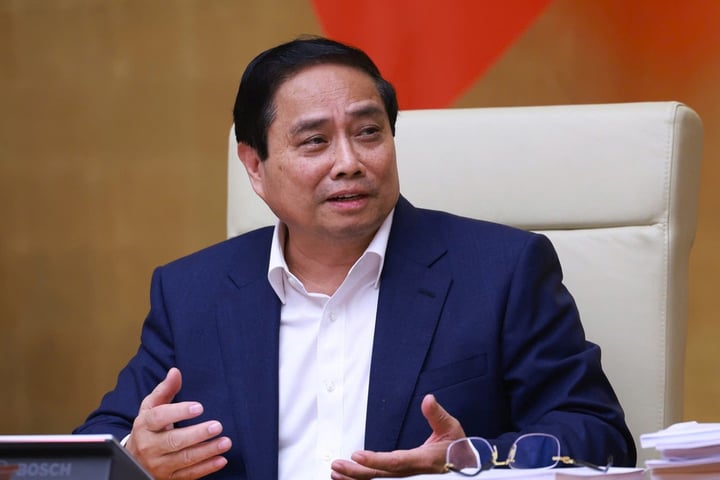
Prime Minister Pham Minh Chinh. (Photo: VGP)
Regarding the proposal to construct the Law on Population, the Prime Minister emphasized the need to shift from a “planned population” perspective to a population development and aging response perspective, with policies that promote this.
The Prime Minister noted the importance of focusing on both the quantity and quality of the population and offering incentives for childbirth and holistic human development in terms of “virtue, wisdom, physical health, and beauty.” This could include expanding social housing policies for large families and disadvantaged individuals when they have children.
On the proposal to construct the Law on Thrift and Waste Prevention, the Prime Minister clarified that the law aims to realize the Party’s directives and the instructions of the Politburo and the General Secretary regarding the intensification of waste prevention. It also aims to shift from a passive approach to an active one, proactively preventing, curbing, and reducing waste.
The Prime Minister suggested including acts of wasting time and missing development opportunities as forms of waste.
Concerning the proposal to revise the Law on Food Safety and Sanitation, the Prime Minister stated that it is necessary to affirm that food safety is directly related to the health and lives of the people. Therefore, the Ministry of Health must take the lead, and other ministries must coordinate to ensure effective management and meet development requirements.
Also, at the meeting, the Government listened to reports and gave opinions on resolving bottlenecks in constructing decrees on decentralization, devolution, and delineation of authority associated with the organization of local governments at two levels.
When commenting on this issue, the Prime Minister spent time analyzing a series of concrete examples from reality. Recalling the lessons from many cases that led to the discipline and punishment, including criminal penalties, of many officials, the Prime Minister attributed this to the fact that the higher-ups “embrace” specific tasks without delegating them to lower levels.
The Prime Minister also mentioned that the Ministry of Science and Technology recently transferred the Hoa Lac High-Tech Park to Hanoi’s management and emphasized that the Ministry should design policies and delegate management to local governments to replicate such high-tech parks nationwide.
According to the Prime Minister, it is essential to thoroughly instill the spirit of decentralization and devolution from higher to lower levels, coupled with appropriate resource allocation, enhancement of lower-level implementation capacity, and the design of tools to strengthen inspection, supervision, and control of power. Additionally, there should be a shift from pre-inspection to post-inspection.
The Prime Minister noted the importance of clearly defining the responsible agency in various management fields and ensuring close coordination between agencies to avoid overlap or legal gaps. Central ministries and agencies should design regulations, policies, standards, and norms, such as those related to clean food and production, and strengthen supervision and inspection nationwide. Meanwhile, the provincial level should handle inspections within their jurisdiction, and the grassroots level should manage inspections within their scope.
The Prime Minister requested that ministries, agencies, and organizations propose and submit to the National Assembly resolutions to promptly handle urgent issues in management fields, meeting practical requirements during the time when laws have not yet been issued.
Particularly, the Prime Minister instructed ministries, sectors, and organizations to focus on removing institutional bottlenecks, with a determination to basically overcome these “bottlenecks” caused by legal regulations by 2025.
Leading with Integrity: The Key to Unlocking Progress
A creative and engaging title is essential for capturing attention and providing a glimpse into the essence of the article or text that follows. I aimed to capture the core message of avoiding waste and embracing integrity in leadership while also conveying a sense of optimism and potential.
Reform and administrative improvement are key priorities for Prime Minister Pham Minh Chinh. He emphasizes a proactive approach to serving the people and businesses, streamlining procedures, and ensuring efficient resource allocation. The Prime Minister is committed to reducing red tape and asserts that there are many ways to avoid waste as long as there is no corruption or negativity.
Launching a Special Campaign to Crack Down on Agricultural Counterfeiting and Smuggling
The Ministry of Agriculture and Environment’s Plan No. 02/KH-BNNMT is an urgent and vigorous initiative that translates the Government’s directives into action. It aims to intensify the fight against smuggling and the production and trade of counterfeit and substandard goods, with a particular focus on areas that directly impact public health and agricultural product quality.
The Ministry of Agriculture and Environment: Digitization of Land Data to Accelerate Public Investment Disbursement
“Speaking at the 2025 Conference on Promoting Investment Growth Motivation, Minister of Agriculture and Environment, Du Duc Duy, highlighted the successful efforts of several localities in digitizing their land database. Specifically, localities such as Ha Nam, Bac Ninh, Binh Duong, Da Nang, and Ba Ria-Vung Tau have efficiently digitized their land records. As a result, these localities have experienced smoother land clearance processes, as every plot of land is now accounted for digitally. This digitization has led to a higher rate of investment disbursement compared to the national average, showcasing the benefits of embracing digital transformation.”
Indictment for the Owner of a Facility Selling 60 Tons of Bean Sprouts Treated with Growth Stimulants
Since the beginning of the year, Nguyen Van Tan’s bean sprout production facility in Bac Giang has supplied the market with approximately 60 tons of sprouts treated with growth stimulants.

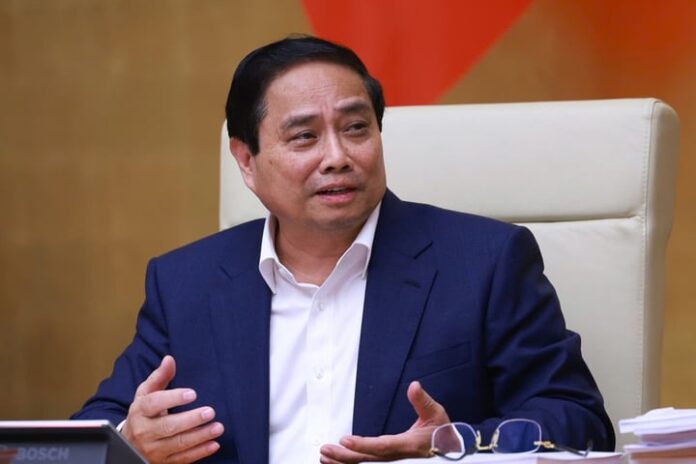
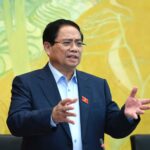
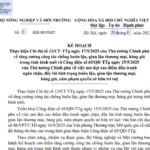
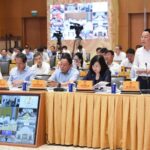

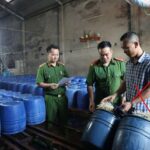



![[Photo Essay]: Experts, Managers, and Businesses Unite to Forge a Path Towards Sustainable Green Industry](https://xe.today/wp-content/uploads/2025/07/z678592918-150x150.jpg)


![[Photo Essay]: Experts, Managers, and Businesses Unite to Forge a Path Towards Sustainable Green Industry](https://xe.today/wp-content/uploads/2025/07/z678592918-100x70.jpg)







